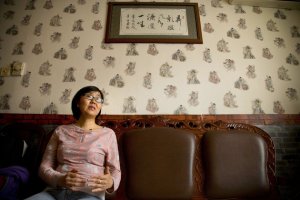
 BEIJING, Jan 13 (Reuters) - Chinese authorities have formally arrested China's most prominent woman human rights lawyer, accusing her of subverting the state, her lawyer said on Wednesday, as part of a crackdown on activists who have helped people fight for their legal rights.
BEIJING, Jan 13 (Reuters) - Chinese authorities have formally arrested China's most prominent woman human rights lawyer, accusing her of subverting the state, her lawyer said on Wednesday, as part of a crackdown on activists who have helped people fight for their legal rights.
The lawyer, Wang Yu, was taken into custody last July and accused the next month of inciting subversion and "causing a disturbance."
On Wednesday, Wang's mother received a notice, dated Monday, from police in the northern city of Tianjin, said Wang's lawyer, Li Yuhan. Tianjin police declined to comment when reached by telephone.
Wang is the best-known human rights lawyer targeted in an unprecedented nationwide sweep by Chinese police last July, during which hundreds of lawyers were detained. A formal arrest usually leads to a trial and conviction by China's party-controlled courts.
China has formally arrested at least five Chinese human rights lawyers on suspicion of "inciting subversion of state power" and subverting state power after months of secret detention, one of their colleagues said on Tuesday.
Mark Schiefelbein/ASSOCIATED PRESS Wang is one of hundreds of lawyers who were taken into custody by Chinese police in July. She is accused of inciting subversion and "causing a disturbance."In China, subversion charges are commonly leveled against critics of one-party rule. Subversion of state power carries a possible life sentence.
"Wang Yu has provided her legal services to people on the lowest rungs of society. I never thought that she would be charged with subversion of state power, " Li said. "I just don't understand this."
Li said she had not met Wang since her client's detention. According to Li, police denied her requests to meet Wang seven times in the past six months on the grounds that Wang's case "endangered state security."
Wang has defended Wu Gan, an online free speech advocate, Li Tingting, a prominent rights activist, and Cao Shunli, an activist who died in detention after being denied medical treatment.
Last year, China's state media accused Wang of "blabbering about the rule of law and human rights." Two weeks after the report, she told a Reuters reporter that she thought her arrest was inevitable.
RELATED VIDEO

![Men in Black 4 will include a prominent female lead [HD]](/img/video/men_in_black_4_will_include.jpg)









